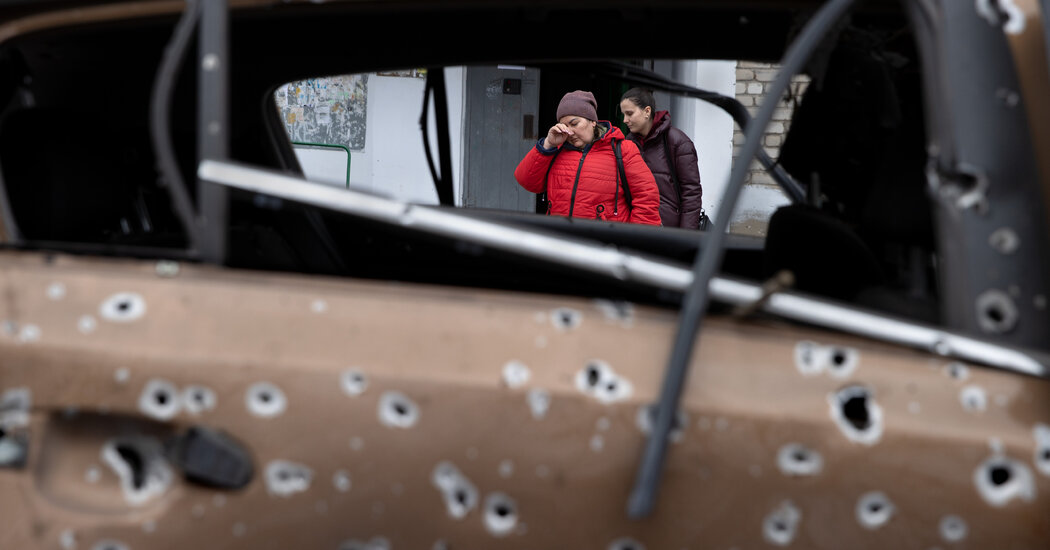
PRZEMYSL, Poland — Every night at Przemysl’s graceful 19th-century train station, there is a line of people stepping off packed carriages, fleeing Russia’s invasion of Ukraine.
But every night at this same train station, there is also a line of people going the other way: into war.
As the skies darkened over Przemysl on Sunday, Chris, an American military veteran, stood with a bunch of burly men, scarves pulled up over their faces, guarding a small mountain of camouflage backpacks stuffed with bandages, chest seals, Kevlar helmets, bulletproof plates and other hush-hush gear.
Next to him was Andrii Shapur, a young Ukrainian who had been living in Poland, working as a carpenter, and was now itching for action on the front lines.
His reason for going?
“Obligation,” Mr. Shapur said simply.
In front of them, sounding calm without a shred of doubt, waited Zhanna Koloshova.
“If it comes to that, I’m ready to fight,” said Ms. Koloshova, with a fierce look in her blue eyes, just a shade darker than her overcoat.
She was returning from Brussels, where she had left her two children under the care of her brother, freeing her up to focus on the war effort.
“Of course I’m scared, it’s only natural,” said Ms. Koloshova, a travel agency owner from western Ukraine, her voice trembling for the first time. “But this is our country, and this is our war.”
“They came to our land. They brought death upon us,” Ms. Koloshova said of the Russian Army, holding firmly to a backpack, her only luggage.
Behind all of them paced Alex Povstyan, a highly educated 53-year-old biophysics researcher in Leeds, England, who felt an overwhelming urge to drop everything and go home to serve.
The windswept borderlands of Poland and Ukraine are flooded with hundreds of thousands of Ukrainian refugees, mostly women and children, who have spent days escaping the escalating conflict.
As the refugees step off the trains, many from Lviv in western Ukraine, they trudge down a ramp right in front of the smaller group of people eager, each for his or her own reasons, to go the other way.
Chris, the American military veteran, who asked that his last name not be used because he plans to join an international combat brigade, said he had been looking for a cause to join and this one seemed the most inviting.
“The doors were wide open,” he said. “The Ukrainians were saying they needed help. And there’s safety in numbers.”
“If I was trying to get to Mali,” he said, mentioning another conflict, “I probably wouldn’t last very long.”
Trains have been running between Przemysl and Lviv since the 19th century, when both cities were part of the Austro-Hungarian empire. Before the war, the trip took no more than two hours. But these days, with so many people desperate to escape, it is filled with delays and takes more than 24 hours — and it’s only 60 miles.
Mr. Povstyan, the biophysics researcher, packed his bags with sausage and cheese so he would have something to eat along the way. He stood in line wearing an enormous blue backpack even though he wasn’t boarding for hours. He had no idea what was in store for him, he said. He didn’t know how he would get from Lviv to his home on the front lines in eastern Ukraine. Or what military service he would perform.
“But I was a weapons system specialist in the Soviet Army,” he said. “I’m sure there’s something I can do.”
War often makes people see things more clearly. As the train to Ukraine finally approached, Chris’s parting words were, “No matter what happens over there, I want be honorable, respectful and courageous.”




